Want to know more about sports and social justice? Start with these films and TV shows

When Milwaukee Bucks players decided to sit out Game 5 of their NBA playoff series against the Orlando Magic, it sent a shockwave through the sports world. The WNBA, MLS, MLB and WTA have all seen similar strike actions to protest the shooting of Jacob Blake, a Black man, by police in Kenosha, Wis. (about 40 miles from Milwaukee), prompting professional sports leagues like the NBA to take concrete steps to respond to athletes' political demands.
Some have celebrated the sports stars' actions, while others have denigrated them. But it's nothing new for athletes to use their platform to speak out on important issues, even in recent history: NFL quarterback Colin Kaepernick first decided to kneel during the national anthem in protest of police brutality four years ago this month; in 2018, basketball icon LeBron James' criticisms of President Donald Trump led conservative commentator Laura Ingraham to tell him to "Shut up and dribble." Indeed, for decades athletes have risked their careers and more to take a stand. And there are plenty of movies, TV shows and books to prove it.
The following list is anything but exhaustive, but here are more than 20 examples — some well-known, some less so — to get you started. Call it Sports Activism 101.

Jesse Owens
The very act of participating in the 1936 Olympics in Berlin as a Black American was controversial, risky — and heroic. Owens emerged from the Games with four gold medals and as one of the greatest sports heroes in American history. His story has been told many times, notably in the Emmy-winning TV movie "The Jesse Owens Story," veteran sports journalist Jeremy Schaap's book "Triumph: The Untold Story of Jesse Owens and Hitler's Olympics" and the recent film "Race."
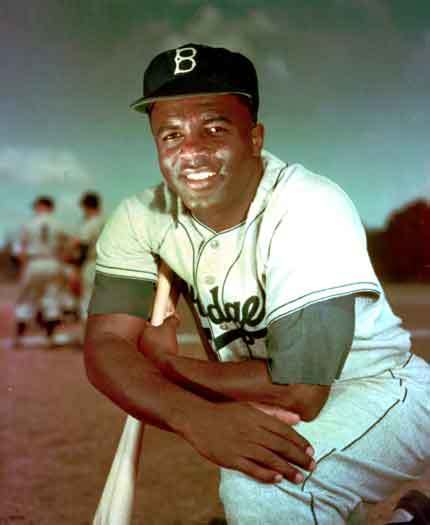
Jackie Robinson
The Dodgers legend is known for his courage and self-control in becoming the first Black major leaguer, but he was also an activist off the field, who often decried American racism and helped organize (with Martin Luther King Jr. and others) the 1958 Youth March for Integrated Schools. Before he became a Dodger, Robinson served in the Army, where he was subjected to a court-martial for an incident in which he stood up to racist treatment on a bus. That story is captured in the HBO film "The Court-Martial of Jackie Robinson," starring two-time Emmy winner (and 11-time nominee) Andre Braugher. Robinson was a complex figure, supporting the Vietnam War and Richard Nixon and staunchly backing the Civil Rights Act and Hubert Humphrey (against Nixon). Among the many other portrayals of the only person to have his number retired by every major league team are 1950's "The Jackie Robinson Story" (in which he played himself); HBO's 1996 film about the Negro Leagues, "Soul of the Game," with Blair Underwood as Robinson and Delroy Lindo in a great performance as Satchel Paige; "42," from 2013, with "Black Panther" star Chadwick Boseman; and the 2016 Ken Burns documentary "Jackie Robinson."
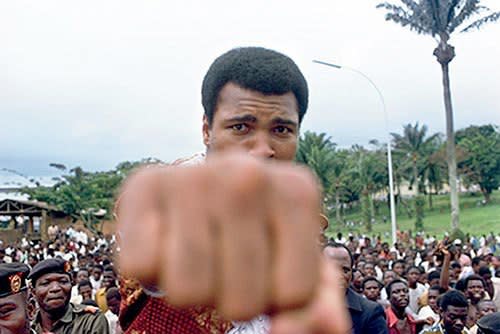
Muhammad Ali
Ali is perhaps the most famous athlete whose career was inexorably intertwined with political protest. One of the greatest boxers of all time, Cassius Clay converted to Islam and changed his name to Muhammad Ali in the 1960s, then cited his religious beliefs and opposition to the Vietnam War in his refusal to be drafted. He was prosecuted for draft evasion and stripped of his titles, though the Supreme Court overturned his conviction in 1971. He lost four prime boxing years during the court fight but managed to become champion again and an icon who transcends not only his sport, but sports in general.
Ali, both the man and the character, has appeared in many films and documentaries. Perhaps the best known is the Oscar-winning documentary "When We Were Kings," but the titles that more directly address his social activism include the Michael Mann-directed biopic "Ali" (for which Will Smith received an Oscar nomination), Antoine Fuqua's HBO doc "What's My Name: Muhammad Ali," and a pair of 2013 films — HBO's "Muhammad Ali's Greatest Fight," Stephen Frears' dramatization of the Supreme Court decision with Ali appearing in contemporaneous clips, and the documentary "The Trials of Muhammad Ali." (For a glimpse of his lighter side, check out Ali's appearances with late-night host Dick Cavett in "Ali & Cavett: The Tale of the Tapes," also from HBO.)
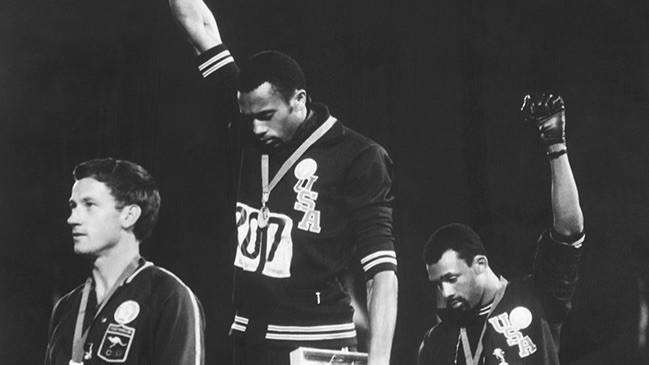
The Black Power salute at the 1968 Olympics
One of the most enduring images of athletes making a sociopolitical statement has to be gold and bronze medal winners Tommie Smith and John Carlos throwing up their fists in the Black Power salute from the medal stand at the 1968 Summer Olympics in Mexico City. Smith and Carlos hoped to bring attention to social injustices, including Black poverty, and to remember those brought to America in bondage. The HBO documentary "Fists of Freedom: The Story of the '68 Olympic Games" (1999) and the BBC doc "Black Power Salute" (2008) cover the event. There's also an Australian documentary ("Salute"), concerning the third man on the stand, silver medalist Peter Norman, who was punished by his government for his support of the gesture.
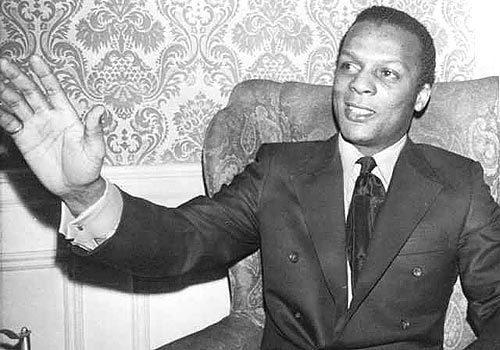
Curt Flood
As recent events have shown, activism extends to athletes' role as workers. . In the case of St. Louis Cardinals all-star center fielder Curt Flood, it was about upending the labor status quo in Major League Baseball. After the 1969 season, he challenged the "reserve clause" that kept players under their original team's control even beyond the lives of their initial contracts. In refusing a trade to the Philadelphia Phillies, he engaged in a losing court fight that would eventually usher in the era of free agency, at the cost of his own career. The 2011 HBO documentary "The Curious Case of Curt Flood" tells the tale.
The Black 14
In 1969, the University of Wyoming was a football powerhouse. When the undefeated team was preparing to play its rivals at Brigham Young University, its 14 Black players sought to address certain racial issues concerning BYU, including what they reported as racist slurs and cheap shots the previous time the teams met. They went to the coach's office to ask whether they could wear black armbands during the game and were met by a surprising response. The story is told in an ESPN documentary short, "The Black 14."
1976 Yale women’s crew Title IX protest
For years after Title IX was passed, protecting women from educational discrimination (including in access to sporting facilities), the Yale women’s crew team still didn’t have designated showers and lockers. They had to wait up to half an hour, wet from practice, for their male counterparts to shower and change in the men's facilities, then ride a bus together so the women could clean up at their dorms. After their appeals went unheeded, the women showed up for an appointment with the administration determined to get their attention. Captain (and eventual Olympian) Chris Ernst read a statement that began, “These are the bodies Yale is exploiting …” as the 19 women stripped nude to reveal “T-I-T-L-E-I-X” painted on their bare skin in Yale blue. The AP and New York Times covered the protest, and in the face of the negative publicity, changes were made. Olympic rower Mary Mazzio made a 1999 documentary about the brouhaha called “A Hero for Daisy” — Ernst being the hero and Daisy being Mazzio’s daughter. As reported in the Yale Daily News, Daisy eventually enrolled at Yale — and joined the crew team.
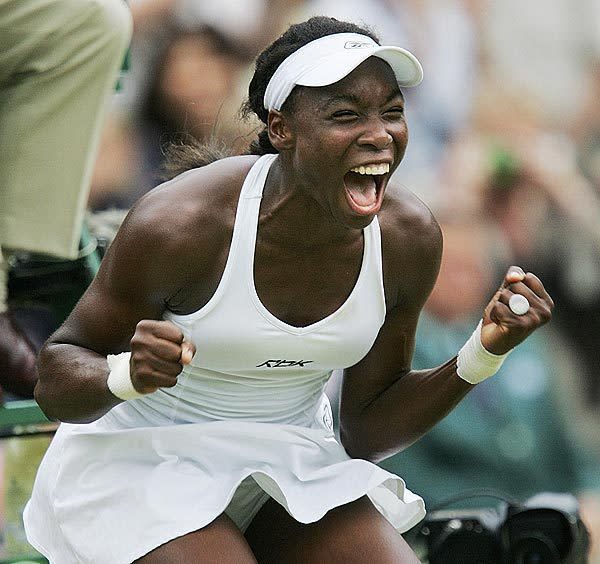
Venus Williams
Best known as one half of perhaps the most dominant sibling pair in the history of sports, the seven-time Grand Slam winner always came alive on Wimbledon's clipped grass — in more ways than one. As depicted in Ava DuVernay's superb documentary "Venus Vs.," Williams followed in the footsteps of Billie Jean King to lobby the iconic English tennis tournament, as well as its clay-court counterpart, the French Open, to offer equal prize money to men and women. Part of the excellent ESPN documentary series "Nine for IX," a women-centric spinoff of the popular "30 for 30" franchise, it's a glimpse into the enigmatic Williams' grit, tenacity and on-court prowess. After all, the first women's singles champion to win the same prize money as her male counterpart was Williams herself, when she took home the trophy in 2007 after a two-year campaign.
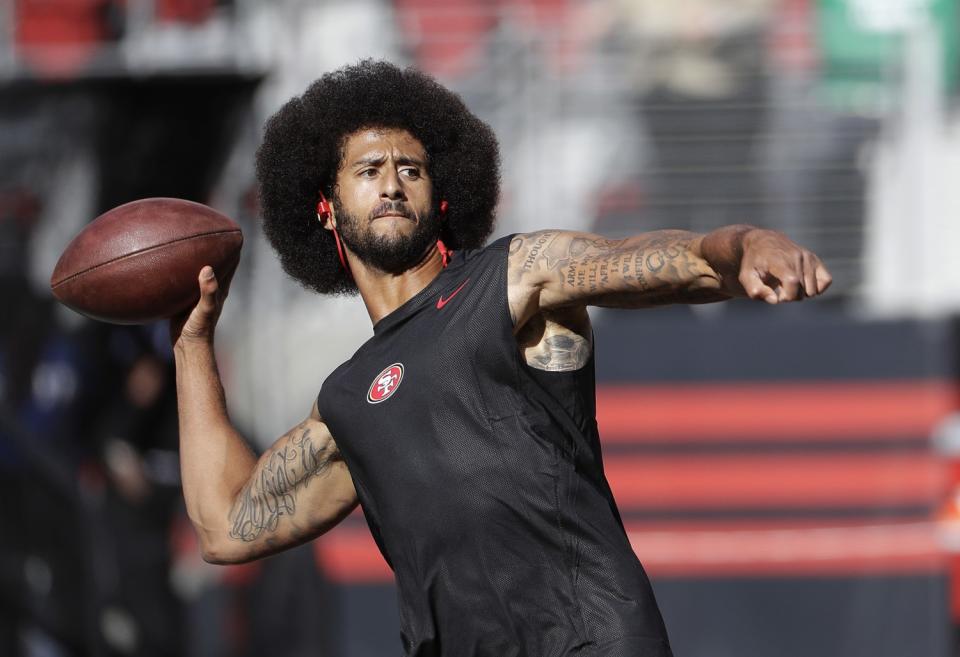
Colin Kaepernick
It's apparently too soon for a documentary on former San Francisco 49ers quarterback Colin Kaepernick, whose silent protest against police treatment of Black Americans — kneeling during the national anthem — apparently cost him a promising career. He's only 32, and his story is still being written. Though he hasn't had an NFL contract in three seasons, his name still comes up when QB vacancies open in the league. The man who originated the now-widely adopted form of protest recently announced a memoir in the works, to be published by his own company, signed a first-look deal with Disney, and is working with Ava DuVernay on a Netflix documentary series, "Colin in Black and White." In the meantime, if you want to read more about him and you're curious why he's out of the league when a poll of current NFL players found that 95% of them believe he still belongs, a number of football analysts have destroyed the claim that he's simply not good enough for an NFL job.
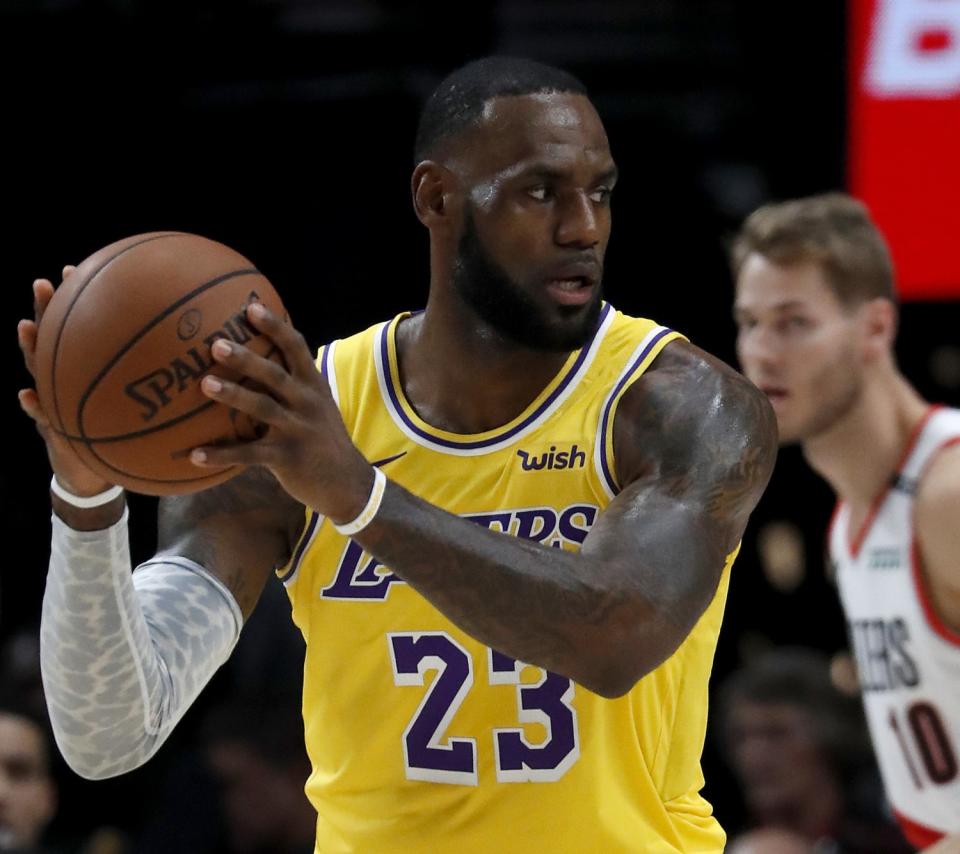
LeBron James
The NBA superstar has been active in his community and politically outspoken for years. Showtime's three-part docuseries "Shut Up and Dribble" is a direct response to Ingraham's bizarre and disrespectful notion that basketball players should set aside their political views to deliver uncomplicated entertainment. . The result, executive produced by James, considers but does not limit itself to racial tensions, nor is it only about the contemporary league, tracing activism in basketball back to Bill Russell, Kareem Abdul-Jabbar, Oscar Robertson, Magic Johnson, Larry Bird and Isaiah Thomas. (Russell's activism during the Boston busing crisis in covered in the current season of the Luminary podcast "Fiasco.") "Shut Up and Dribble" also depicts the league's evolution into an organization truly dominated by the players — something proven again by the current protests.
Television editor Matt Brennan contributed to this report.

